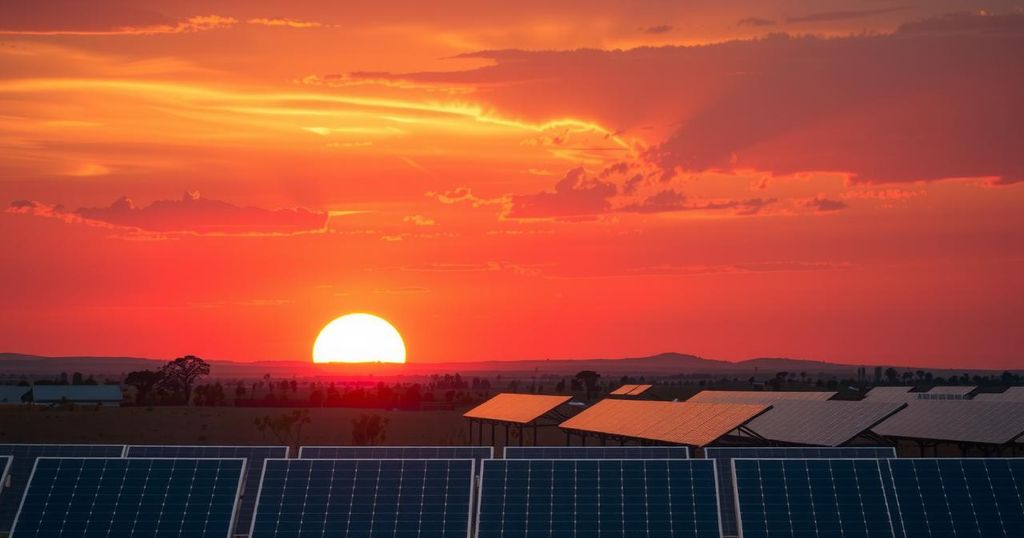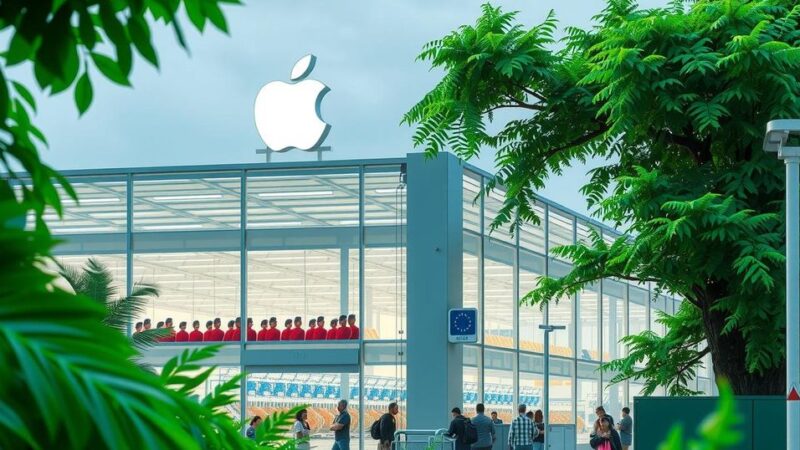The proposed ban on solar panel imports in Nigeria could lead to higher prices, impacting accessibility for many citizens. Executives warn that without adequate local production capabilities, the ban may exacerbate challenges for rural areas reliant on solar energy. Experts called for careful consideration to balance energy needs and local production capabilities.
Chidi Okonkwo, a businessman dependent on solar panels for his grocery shop, criticized the Nigerian government’s proposed ban on solar panel imports, comparing it to “outlawing umbrellas during the heaviest rains.” In Nigeria, where the national grid only provides limited electricity daily, solar energy serves as a crucial resource for powering homes, businesses, and essential medical equipment in rural areas.
The federal government is invoking Presidential Executive Order No. 5 to emphasize local content within the science and technology sectors. Uche Nnaji, the Minister of Science and Technology, asserted that Nigeria possesses the capacity to meet its solar energy requirements through local production, citing the abundance of lithium resources to be processed for battery manufacturing.
However, energy experts recall the similar circumstances from August 2019 when Nigeria closed its land borders to combat smuggling, particularly of rice. Five years later, food prices continue to rise despite the reopening of borders, and farmers face persistent challenges. Aisha Mohammed, an energy analyst, noted that a ban on solar imports could exacerbate existing high prices and make solar panels unaffordable for many Nigerians.
Jide Pratts, the country manager of Trade Grid, described the import ban as a hasty decision that lacks a proven precedent in Nigeria. He acknowledged Nigeria’s lithium deposits but pointed out the country’s failure to extract it commercially and standardize the product. He emphasized that imports should not be curtailed until local production can sufficiently meet demand.
Experts agree that Nigeria’s local solar manufacturing industry is still developing, with existing assembly plants unable to accommodate the demand. Chioma Nwachukwu, a project manager for a solar nonprofit, highlighted that locally produced solar panels tend to be pricier than imported alternatives, making them less accessible for average citizens.
BusinessDay’s research reveals a wide range of costs for solar systems in Nigeria, from N400,000 for basic setups to N20 million for comprehensive off-grid solutions, catering to various energy needs. For instance, Juwon Adesanya invested N4 million in a capable solar system for his home, reflecting the growing interest in solar technology to reduce reliance on traditional power sources.
Experts predict that if the import ban is enforced, prices for solar systems could increase by 40-60%, pushing low-income families back to generators and fossil fuels, thereby worsening pollution and energy poverty. The rural population, often reliant on solar energy for electricity, may be particularly hard hit by this ban.
Adebola Ogunleye, a frozen food vendor, expressed concern that rising solar costs would compel him to increase prices, with potential repercussions for his customers struggling with their finances.
In conclusion, the proposed import ban on solar panels in Nigeria raises significant concerns regarding energy accessibility and affordability. Experts warn that such a prohibition could lead to increased prices, reducing solar energy’s availability for many citizens, particularly in rural areas. Transitioning to local production requires careful planning to create a balance between domestic supply and the urgent energy needs of the population. Without a strategic approach, Nigeria risks complicating an already dire energy landscape.
Original Source: businessday.ng






